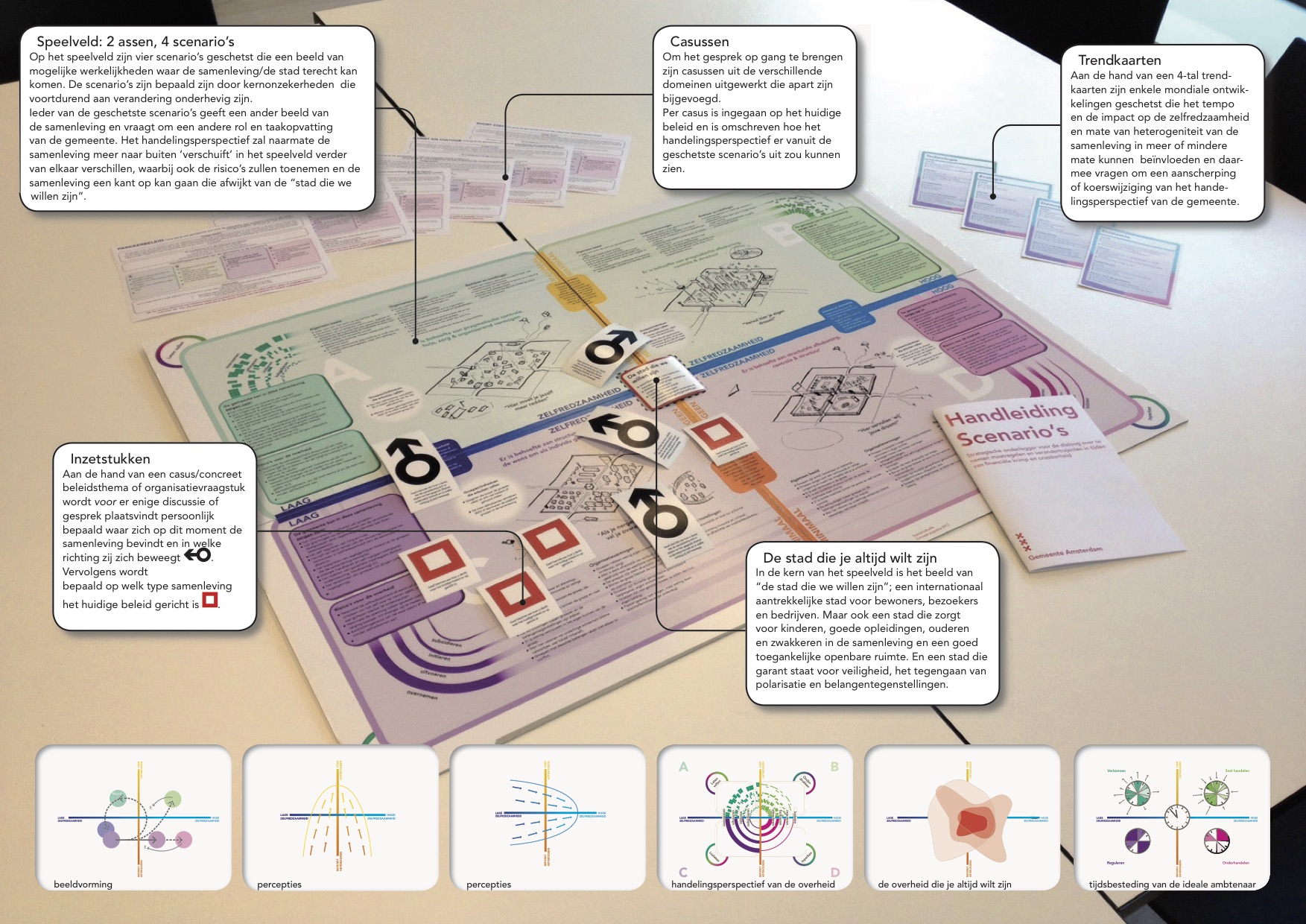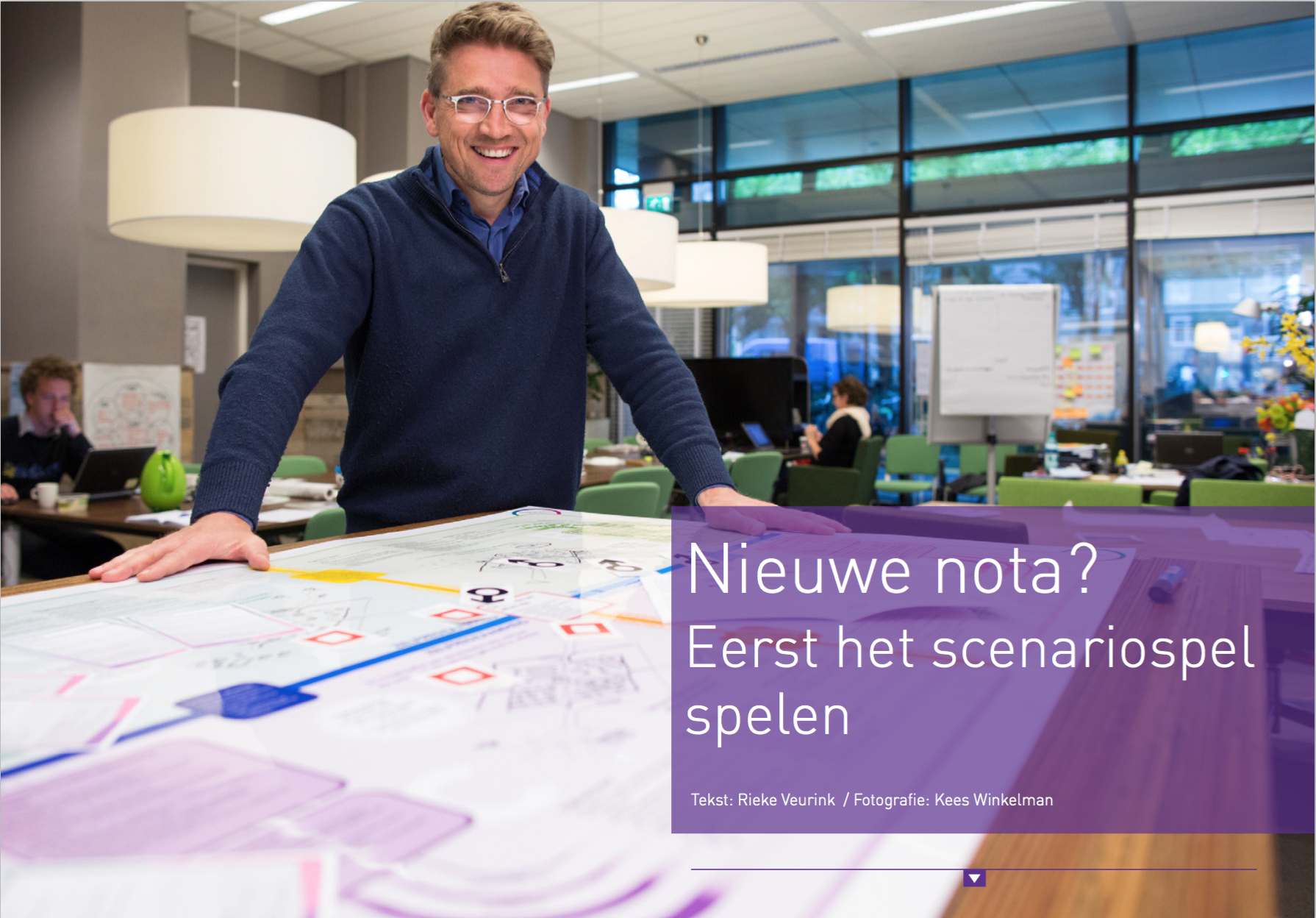Games for Cities
Scenarios - The Game (2015)
Amsterdam [NL]
Developed by:
A board game that encourages stakeholders to think through the potential implications of various development scenarios for their city, during a time of shrinking governments and increasing heterogeneity.

Scenarios is a serious game developed for the City of Amsterdam as a way of working through various possible development futures for the city and its people. This makes it possible to identify possible gaps in public policy, to discuss environmental scenarios in a creative setting, and to collaboratively work through a range of solutions for filling these gaps. The starting point for all scenarios is the continuing economic uncertainty and a shrinking government with fewer structural funds, combined with an increasingly heterogeneous population. The intention is to provide insight into the versatility and resilience of municipal organisations, with the playing field providing the basis and impetus for generating strategic dialogue. Setting Scenarios enables better preparation for an uncertain future. It involves asking if we (the City) are agile and resilient enough to cope with future changes? Do we have the right skills? Do we understand the signals that predict if we’re heading in a different direction?
At the core of the field of play is the image of ‘the city we want to be’ – a utopic vision of a society where all social needs are considered and met. On the playing field, four scenarios are outlined featuring the possible realities that your society/city may follow. Trend cards map the global trends for technology, demography, ecology, and economy, and the implications that these have on various scenarios. Scenarios are devised (by your game-master) and players then place their tokens on the board to identify where on the the two-axis system their scenario lies. The x-axis plots the degree of self-reliance in a society – increasing towards the right – while the y-axis plots the degree of heterogeneity – increasing upwards. Generally, it can be said that society is moving from less to more heterogeneous, and from less to more self-reliant, making it difficult for government to effectively serve the individual needs, requirements and interests of its people. While this heterogeneity is ever-increasing, public policies remain very generic – managing this conflict and transition is the main objective of the game.
This involves grounded imagination on the part of players who then flesh out each possible scenario, and determine the role of the state and society in each. The core principle of the game is not to imagine extreme scenarios, but to remain close to reality and to come up with alternative answers. Players are then able to explore these alternative scenarios in a playful way, enabling conflict resolution, and, importantly, helping players to see from perspectives other than their own. Scenario games often produce unexpected outcomes, enabling a broader diversity of voices to participate in discussions, and hence a broader range of solutions to be found. During the game, players tend to form consensus around robust solutions that apply to all scenarios explored. This is a good example of the ways in which a ‘play’ approach can make it easier to work through different perspectives, and to prevent conversations and decision-making from becoming too political or personal.
